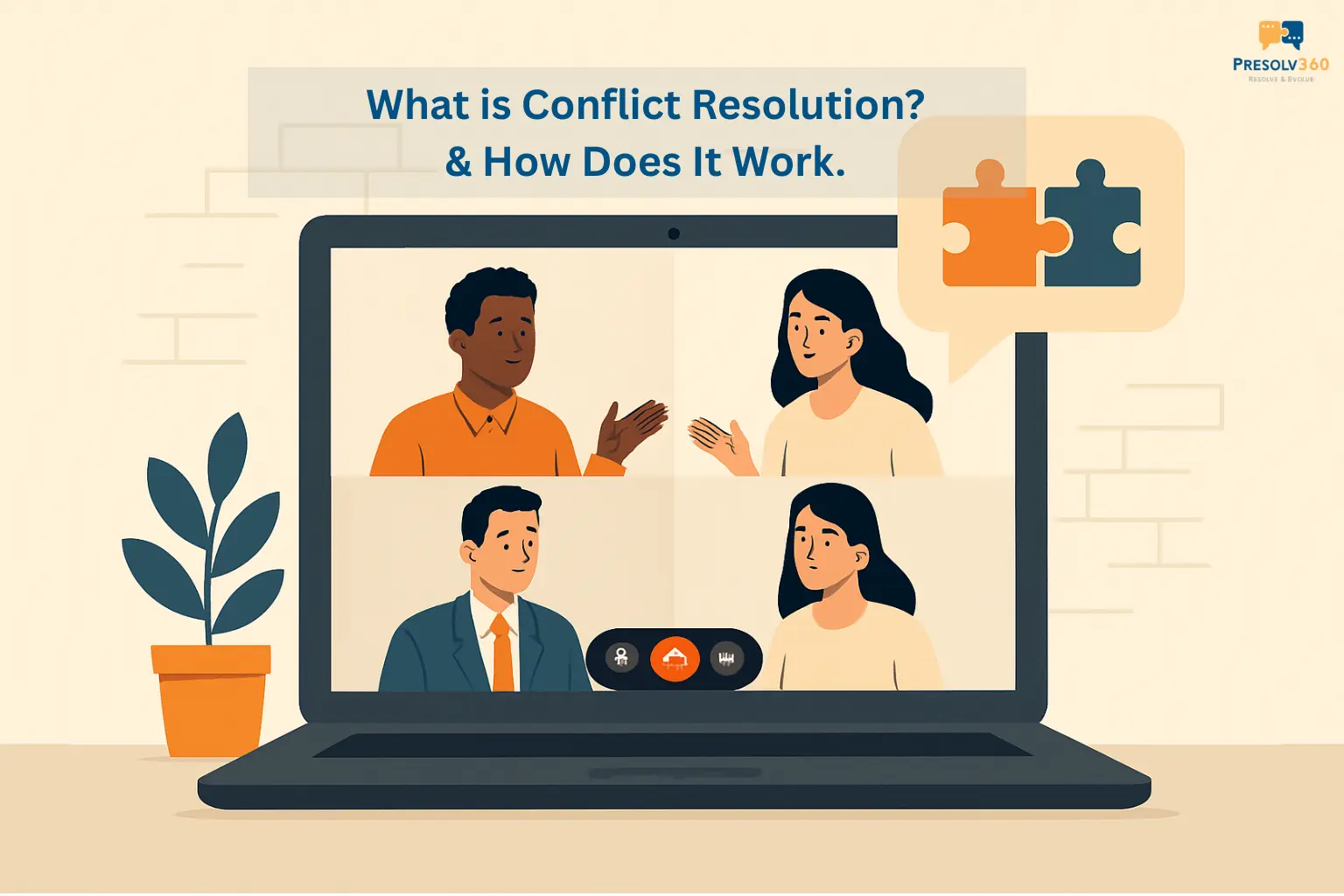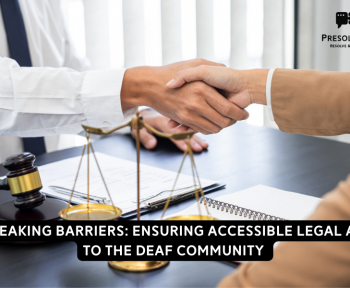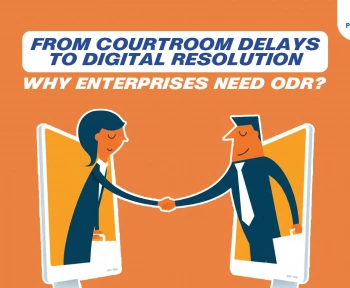Conflict is a natural part of human interaction. Whether it’s a disagreement at work, a misunderstanding in your family, or a dispute over a contract, conflict happens. What matters is how we deal with it.
That’s where conflict resolution comes in. It’s not just about ending a fight or choosing a winner. It’s about understanding the root of the disagreement and finding a way forward that works for everyone involved.
So, what exactly is conflict resolution, and how can it help us in real-life situations?
Understanding what conflict resolution is, how it works, and which conflict resolution methods are available can help individuals and organizations create more cooperative environments.
What is Conflict Resolution?
In simple terms, conflict resolution is the process of settling disagreements in a peaceful, respectful, and constructive way. It’s not just about stopping an argument; it’s about finding common ground and building better relationships in the process.
It helps prevent small issues from snowballing into bigger problems and encourages open communication, mutual respect, and long-term solutions.
Common Areas Where Conflicts Occur:
- Workplace: Miscommunication, leadership clashes, or unclear roles
- Family: Disputes over responsibilities, finances, or parenting
- Business: Contract disputes, service complaints, or client issues
- Legal disputes: Civil cases, property conflicts, or personal injury claims
Conflict Resolution vs. Dispute Settlement
While they may sound similar, conflict resolution is broader and more relationship-focused. Dispute settlement often involves a final decision. Conflict resolution, on the other hand, is about understanding each other, solving the problem, and preventing it from happening again.
Key Principles of Conflict Resolution
Here’s what makes conflict resolution effective:
- Empathy: Try to see the situation from the other person’s perspective
- Active Listening: Letting each side share without interruption or judging
- Respect: Keep things civil, even when you disagree
- Collaboration: Working together toward a mutually beneficial solution
- Neutrality: Sometimes, it helps to have a neutral third party guide the conversation
Common Conflict Resolution Methods
There’s no one-size-fits-all approach, but these are the most widely used methods:
1. Negotiation
A voluntary discussion between parties to reach a mutual agreement.
2. Mediation
Involves a neutral third party who facilitates communication and proposes solutions, but doesn’t make a final decision.
3. Arbitration
A more formal process where an arbitrator listens to both sides and makes a binding decision.
4. Online Dispute Resolution (ODR)
Digital platforms are used to resolve disputes virtually. Increasingly popular in business and legal domains due to convenience and speed.
How the Conflict Resolution Process Works
Understanding the steps in conflict management ensures a clear path to resolution:
- Identifying the Problem
Ensure that everyone understands the actual issue. - Gathering information
Collect facts and hear everyone’s perspective. - Understanding interests
Look at what each party truly wants, not just their stated positions. - Exploring possible solutions
Brainstorm possible options and look for win-win outcomes. - Reaching and implementing agreements
Choose the best path forward and make it official. - Monitoring progress and follow-up
Regularly check if the solution is working and make adjustments as needed.
Why Conflict Resolution Matters
When done right, conflict resolution can.
- Strengthen relationships
- Increase productivity
- Build trust
- Reduce legal risks
- Encourage open communication
- Save time and resources
Whether you’re dealing with workplace conflicts or a family disagreement, good conflict resolution can turn a stressful situation into a chance for growth.
Real-World Applications
- At the Workplace, HR teams often use mediation to resolve employee disputes.
- In Court: ODR platforms help courts manage thousands of cases more efficiently
- In Education: Conflict resolution programs are included in school curriculums.
- Family: Professional mediators often help parents work through custody or divorce issues
Tips for Improving Conflict Resolution Skills
Want to get better at resolving conflicts? Try these:
- Stay calm and composed
- Focus on the issue, not the person
- Practice active listening
- Use “I” statements instead of accusations
- Know when to involve a mediator or third party
- Keep documentation of the resolution process
If you’re wondering how to resolve a conflict at work or at home, mastering conflict resolution skills can make a big difference in how your relationships grow and how problems get solved.
Conclusion
Understanding conflict and resolution is key in both personal and professional life. Whether through simple negotiation or formal litigation, using the right conflict resolution methods can transform disputes into opportunities for growth and collaboration.
Learning the steps for conflict management and improving your conflict resolution skills helps you navigate life more effectively—and more peacefully.
Whether it’s through a calm conversation or a more formal process like mediation or arbitration, conflict resolution is an essential life skill worth developing.
Explore how Presolv360’s ODR platform can streamline your conflict resolution process.




